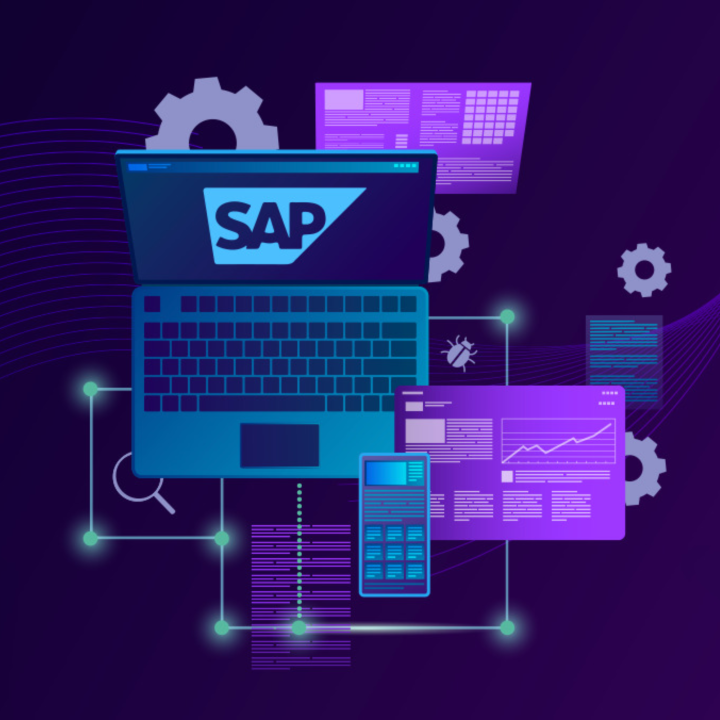Artificial intelligence and cloud-based testing: Software Testing trends in 2025
Due to software’s increasing relevance in performing critical day-to-day activities, software testing is more important than ever to assure a satisfactory user experience.
From the increase of cybersecurity testing to scalability for the Internet of Things, the Software Testing world keeps growing and evolving. Learn about some of the most important trends in Software Testing in 2025 in the following article.

Artificial Intelligence
Artificial Intelligence has become the most heard topic in the technological world over the last few years. According to McKinsey & Company, in the year 2024,
72% of organizations have already adopted the use of artificial intelligence.
Because tests are prone to human error and take a lot of time, AI-powered tests can help perfect and optimize software quality assurance processes. This technology may be the key to the future, a tool that will transform how software testing is realized.
Artificial intelligence allows to identify changes and automatically update tests. By the tool regularly, it can learn and adapt continuously, improving its abilities over time. Thanks to this, it has capabilities of test reparation and error diagnosis, and by consequence, it improves the precision, quality and maintenance of tests.
Autonomous AI
Autonomous artificial intelligence is a system that can realize tasks without human intervention; one of its most relevant examples is AI Agents. These agents refer to a system or program that can realize duties independently by designing their workflow using existing tools.
These autonomous agents learn to adapt to users’ expectations and can store information from past interactions and plan future actions. This broadens the possibilities of the future of testing, making human intervention less necessary in each step of the process.
Generative AI
Generative artificial intelligence, which has become an essential tool for software testing, functions by creating content from existing data and information. It provides faster test creation for work teams by autogenerating tests from requirements, identifying errors in the code, and making suggestions.
This type of artificial intelligence can also understand and process human language through Natural Language Processing (NLP), which helps generate test cases from simple language requirements.
Generative AI offers access to intelligent information to perfect and accelerate test strategies because it can help explain complex test cases, interpret results, and summarize steps and test procedures.

Mobile apps and cloud-based testing
Additionally, one of the more relevant tendencies in the technological world today is the use of cellphones and mobile devices, which are primordial in the lives of users and dominate the use of internet. According to the report Digital 2024 of We Are Social,
in 2024, the average use of a smartphone was of 5 hours and one minute a day, which represented an increase of 5.6% from the previous year.
This is why it is necessary to realize tests for mobile apps to guarantee they work without fail and that the user has a good experience using them.
Mobile apps require performance tests to guarantee that these work correctly in different speed and conditions of network connection. Additionally, it is necessary to realize tests for the usability and functionality of the interface, as well as of capacity and time of response. Furthermore, multiplatform tests help guarantee compatibility between mobile devices, which is crucial to provide a consistent user experience, proving that apps work in iOS, Android, and hybrid platforms.
Cloud-based testing
Due to the increasing demand of realizing tests for apps, it is also relevant to realize tests in the cloud to be able to manage them. Cloud-based tests are software quality tests that are made in a cloud of real devices, in which teams of QA can test websites and apps in real time from a number of different devices.
Some benefits of cloud-based tests:
- Offers scalability, process optimization, and flexibility.
- Allows work teams to take advantage of resources on demand.
- Realize tests in different devices without being limited by the local infrastructure.
- Avoid bottlenecks caused by limited access of shared or costly resources.

Plataforms for cloud-based testing
Some services, such as AWS Device Farm, Google Firebase Test Lab, and BrowserStack, alongside others, offer test environments for web and mobile applications in the cloud.
The advantages of some of these platforms:
- Remote access to devices in which you can interact with and test aplicaciones in real time.
- Automized tests of applications.
- Execution of different tests for different devices, including both Android and iOS.
- Capabilities of integration with Continuous Integration (CI) systems.

Applying these programs and tools in your software testing can help your team be more efficient and updated with the technological advancements that change day to day. If you are interested in implementing platforms such as AWS Device Farm, BrowserStack or learning about tools with Artificial Intelligence integrations, reach Getecsa to learn more information.
by Isabel González Centeno, march 31, 2025.
References
Gutowska, A. (2026). What Are AI Agents?. IBM. https://www.ibm.com/think/topics/ai-agents
Nayak, I. (2023). Level Up Your Mobile and Web Application Testing with AWS Device Farm. Medium. https://medium.com/simform-engineering/level-up-your-mobile-and-web-application-testing-with-aws-device-farm-d82f80e6004
Sindhu, D. (2019). Artificial Intelligence in Software Test Automation: A Systematic Literature Review. SSRN Electronic Journal. https://www.researchgate.net/publication/357032804_Artificial_Intelligence_in_Software_Test_Automation_A_Systematic_Literature_Review
We Are Social. (2024). Digital 2024. https://wearesocial.com/es/blog/2024/01/digital-2024-5-billiones-de-usuarios-en-social-media/




